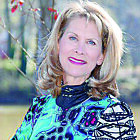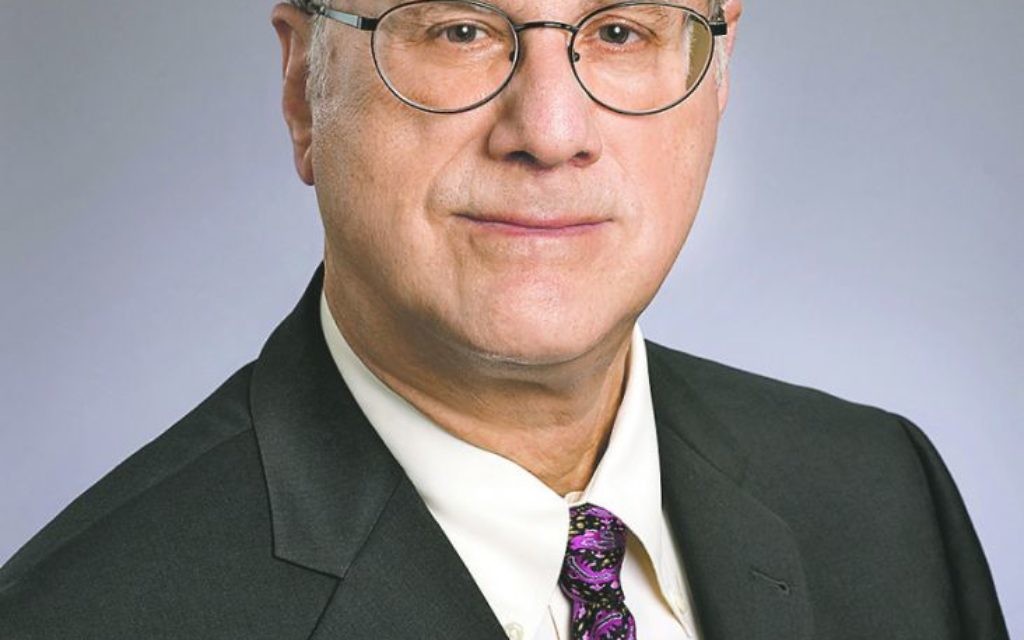Jaffe’s Jewish Jive: A Medical Pioneer Among Us
Last December while pundits speculated whether ISIS fighters or Ferguson rioters would be Time magazine’s Person of the Year, reason prevailed when Dr. Bruce Ribner and other Ebola health care workers took the honor.
Ribner also was selected by Atlanta Magazine in July as the top doc in infectious diseases.
He may be the most famous man you have never heard of. Ribner, a product of Princeton University and Harvard Medical School who has a master’s in public health to go with his M.D., serves as the director of the Serious Communicable Disease Unit at Emory University Hospital. He is best known now as the “Ebola Doctor” who restored calm to the frightened public by executing the 13-year plan of the isolation unit to treat infected health care workers during the 2014-15 outbreak in West Africa.
Get The AJT Newsletter by email and never miss our top stories Free Sign Up
We were glued to the sight of Ribner on the major news channels, and then I saw him opening the ark at Ahavath Achim Synagogue. My son saw Bob Dylan on Yom Kippur at Beth Tefillah. Services are the place to be for more than one reason.
Here is part of our interview.
Jaffe: You have been called the only man truly prepared to deal with something like the Ebola virus. You began the isolation unit and protocol 13 years ago. Did you ever doubt your decade-long course?
Ribner: For a while I was compared to Noah building an ark for a storm that was not coming. There is value in a certain high level of insurance. Infectious disease physicians have to really know everyone’s specialties to prepare for the unimaginable.
Jaffe: What does an isolation unit consist of?
Ribner: Six hundred twenty-two square feet for two patients, special ventilation, and the ability to care for the sickest patients.
Jaffe: Emes (tell the truth). Did you ever feel that you were in harm’s way — of contracting the disease or spreading it to your loved ones?
Ribner: Sanjay Gupta asked me the very same thing. I never had fear. I have great faith in our policies and procedures.
Jaffe: Did you ever harbor the notion that Ebola could have become an epidemic in the U.S.?
Ribner: No, I didn’t. It was never a threat to the general public. Our public health infrastructure is too strong. But don’t relax as being out of the woods. Ebola might come back. We have to plan and adjust. In the next three to five years, we might see MERS, avian influenza, SARS or a totally new agent. Nature has taught us that she throws curve balls.
Jaffe: During the crisis, did you find yourself working under extreme pressure?
Ribner: Yes, it was very labor-intensive. We worked around the clock caring for four patients. Remember, it was an intensive-care setting.
Jaffe: What do you think is your main contribution?
Ribner: Our mission was to educate the public with the confidence that we could clearly handle the situation. We also owed it to health care workers to add to our knowledge about this disease. We at Emory set the national example.
Jaffe: You’ve been a physician for four decades, and now you’re Time Magazine Person of the Year. How do you prepare yourself for all the publicity? Does your family tease you about getting a big head?
Ribner: Well, I never anticipated this international spotlight. My family is proud. My granddaughter (while researching Ebola in the school library) was overheard bragging to her classmates that she had a famous grandfather. Actually, we handled the press fairly well. One of our patients came and left before the press knew a month later. We treated three patients from West Africa with high-risk exposures that the press never knew about. Total secret until now. Patient confidentiality is tops.
Jaffe: So where are we now with Ebola?
Ribner: The American public has a short memory. People abroad are still suffering, and we are still observing. The vaccine used in Sierra Leone is promising. Two agents we tried here showed no benefit. One patient was given a different experimental agent after a high-risk exposure and never got sick. We are learning a great deal.
Jaffe: Do you come from a medical family?
Ribner: Growing up in New York City, my dad was a dentist. My older brother is a neurologist. My wife was a nurse/health care administrator, faculty research nurse. I majored in chemistry and knew that I didn’t want to end up doing basic science research.
Jaffe: Are any of your sons in medicine?
Ribner: They are all successful professionals: one mechanical engineer, one attorney, and one (here in Atlanta) is CEO of a flooring company. But the star this week is my 18-year-old grandson graduated from the Weber School and is joining the IDF.
Jaffe: So what do you do to relax?
Ribner: I just came back from Banff, Canada, giving a lecture, then staying over to hike the glaciers with my wife. My hobby is woodworking; I recently made a grandfather clock.
Jaffe: Do you look to religion in your work?
Ribner: As a Jew, my primary mission would involve saving lives. On a more practical level, we developed an alternate protocol in case we had to cremate a victim … should Jewish observance come into play. Fortunately, it did not. But we were prepared.
Jaffe: Giants in medicine. We’ve seen the pride lists of what Jewish physicians have contributed to society: Salk, Einstein, Freud, Jarvik. Now Ribner. But I did wash my hands after exiting the infectious disease hallowed halls at Emory.






comments